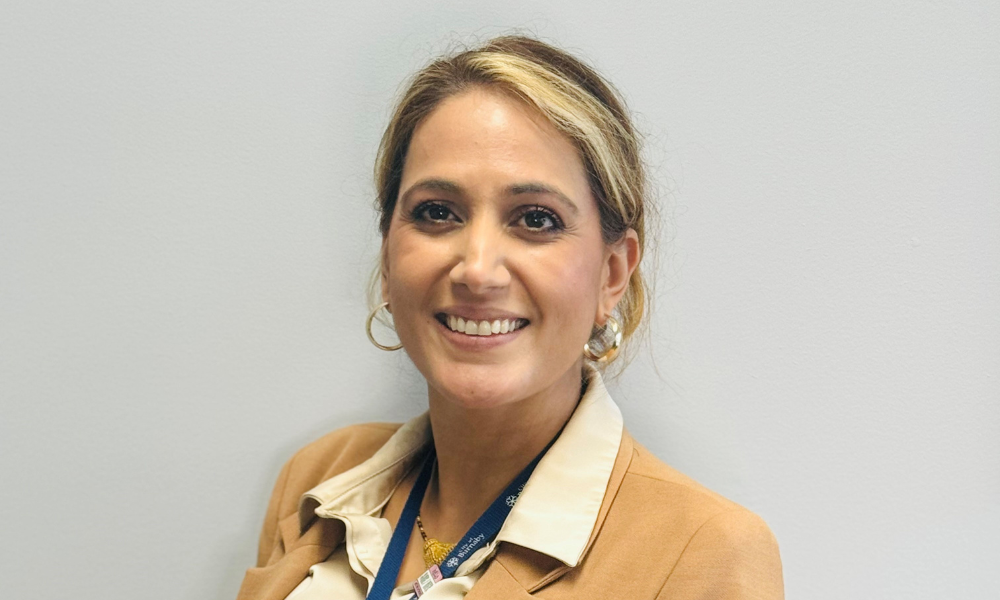
'What we need to start really doing is giving people back that power to be themselves in the workplace'

It was a moment of personal loss in her life in 2021 that caused City of Burnaby CHRO Anita Bhandari to reassess how she was showing up in her role, sparking a deep dive into equity, diversity and inclusion (EDI) that has spread throughout the organization.
“At that point, my journey related to EDI and inclusivity changed, where I started realizing it's so important to be your true, authentic self,” she says.
Although her career had been on a steadily upward trajectory, Bhandari, as a woman of colour, had been more focused on fitting into an expectation than on fully embodying the role.
As she shared with HRD Canada, it took losing first her father, then a first cousin, then her grandfather — all influential community figures in their own right — to make her take a look at how she was showing up in her work, and whether that was best serving her organization and the community.
“My growth within people and culture or HR, I guess it's been quite steady, I've grown,” Bhandari says. “But I think there was a true disconnect, because a lot of my focus was trying to be something that I really had to be, that was considered the normal for those type of roles.”
For Bhandari, fostering an inclusive workplace means providing employees with the space and support they need to embrace their authentic selves. Her EDI work has empowered her staff to feel more comfortable expressing their identities, making the workplace not only more inclusive but also more dynamic.
“It really is beautiful,” she says. “Even myself, as a woman of colour, if it was like this when I first came into the workplace, and people celebrated the culture I come from, it would be a very different growth, I think, for me, as I would be myself right from the beginning, versus trying to feel comfortable: ‘Who should I be today? How should I show up?’ You just come in and be yourself, and it's a beautiful thing.”
One of the core tenets of Bhandari’s approach to EDI is the importance of authenticity. She encourages her team to bring their true selves to work, believing this fosters greater personal and professional growth.
Reflecting on her personal journey, Bhandari recalls how difficult it was to fully embrace her identity as a woman of colour in leadership. Over the years, she has learned that when employees are allowed to be themselves, they thrive and are enabled to contribute their unique perspectives, adding value to the work environment.
“I truly believe if people can be themselves, they will blossom,” she says. “If we as employers could really create that space for individuals, I think our workplaces would become that much more incredible.”
Bhandari’s career path into the municipal sector was initially motivated by security, but as her career progressed, she found herself drawn to the public sector’s ability to create a lasting impact on the community.
“I feel like you can have a real widespread influence, which is really important for me,” she says.
“[With] my parents being immigrants into the country, having a government job was always something that people were so proud of, and giving back to the country that gave them an opportunity. So, I think a little bit of that's always been embedded in me, that draws me to the municipal sector, or the government sector in general.”
Before entering the public sector, Bhandari worked in tourism, consulting, and ran her own business. Yet, her passion for creating change on a broader scale ultimately led her to roles with Port Coquitlam, Maple Ridge, and now Burnaby.
For Bhandari, the municipal sector offers a unique opportunity to affect positive change for an entire community, rather than being driven solely by revenue or profit.
“Communities depend on you, and the things you do and the change you make really does impact the larger community,” she says. “The more I stay, the more I see what we can do and the impact that we can have on the larger communities. It's amazing.”
With that broader influence in mind, Bhandari works to instil in her team an adherence to doing “the right thing” in all of their decisions; her leadership is grounded in the belief that the future of work lies in embracing diversity, technology, and community-driven goals.
“I always say this to my staff — you're surrounded by legislation, laws, and there's things that you have the right to do and there's things that you have to do, which are two different things… I always go back to ‘What is the right thing to do in our situation, and how do we really have positive change and make it so it works for a large portion of the population?’ I just try to really think more from an empathetic perspective when we're making decisions.”